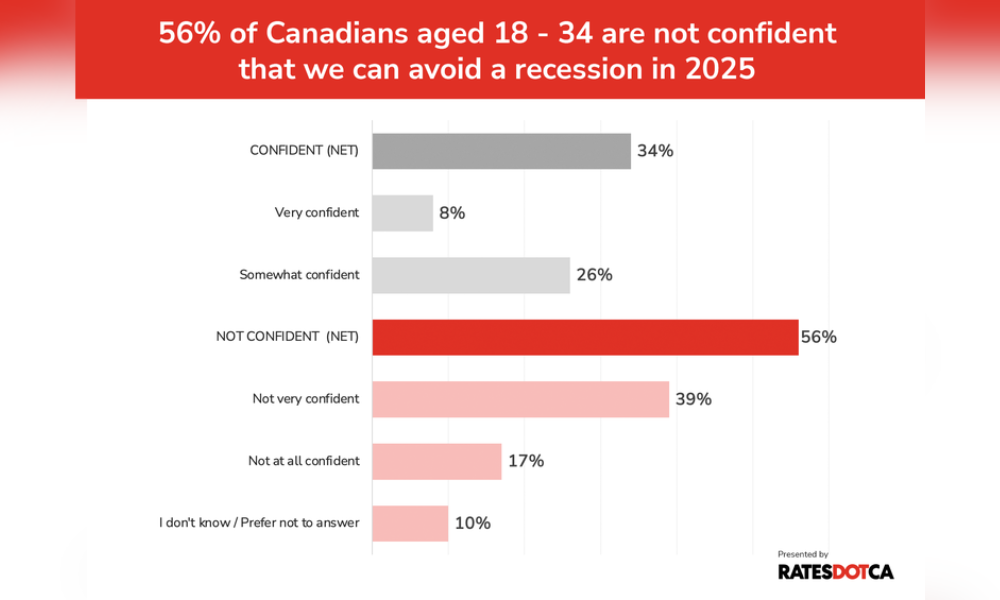Financial confidence high among homeowners, but renters face growing pressure

While many Canadians are losing sleep over the economy, a recent study reveals that some are resting easy – particularly those with multiple properties to their name.
A survey conducted by Leger for RATESDOTCA has uncovered a surprising trend: the more homes you own, the less likely you are to fret about your financial future.
Only 5% of respondents are "very confident" that Canada will avoid a recession in 2025, while 16% are "not at all confident." This uncertainty is fuelled by rising inflation, increasing interest rates, and concerns about job security.
“Over the past year, while the economy has grown largely thanks to population growth, on a per capita basis, consumer spending has fallen,” noted Tu Nguyen, an economist and ESG director at RSM Canada.
 Nguyen pointed out that this decline in spending, if it continues, could potentially lead to a recession. However, she noted that ongoing rate cuts by the Bank of Canada might soon ease financial pressures on households.
Nguyen pointed out that this decline in spending, if it continues, could potentially lead to a recession. However, she noted that ongoing rate cuts by the Bank of Canada might soon ease financial pressures on households.
Interestingly, the survey highlighted that property ownership plays a significant role in shaping Canadians' economic outlook.
Homeowners, especially those who own more than one property, are significantly more optimistic. About 70% of multiple-property owners expressed confidence in their financial situation for 2025, compared to just over half of all homeowners.
Victor Tran, a mortgage broker and RATESDOTCA expert, explained that multiple-property owners are typically wealthier and less vulnerable to fluctuations in interest rates. These individuals often have diverse income streams and higher net worth, insulating them from economic uncertainties.
Tran also pointed out that many of these homeowners are older and either have small mortgages or none at all, further reducing their financial stress.
On the other hand, renters and prospective homeowners are among the most concerned about their financial futures. Renters, particularly those under 35, earning less than $60,000 annually, and living in urban areas, are struggling to keep up with rising rents.
Read next: Is the advantage in Canada's housing market swinging back towards buyers?
Statistics Canada data from 2023 shows that renters spent nearly 9% more than their income, while homeowners managed to save 7% of their take-home pay, revealing a significant financial gap between the two groups.
Nguyen highlighted the growing challenges for renters, noting that the percentage of income they spend on housing has risen sharply over the years. In 1999, renters spent about 25% of their income on housing, compared to 23% for homeowners. By 2022, this gap had widened, with renters spending 29% of their income on housing, while homeowners spent just 21%.
For many Canadians, the current economic environment feels like a recession, even if the country hasn’t officially entered one.
Although Canada’s jobless rate was 6.4% in July, the economy has so far managed to avoid the technical definition of a recession. However, for those struggling with rising costs and stagnant wages, the distinction offers little comfort.
“While total household spending is being supported by strong immigration, per capita or per person spending has fallen for five of the past seven quarters,” said Olivia Cross, economist at Capital Economics.
“The recent retail sales data echoes the message that individual consumers are spending more cautiously, with the weakness in sales volumes concentrated in discretionary sectors, such as clothing, accessories and electronics.”
Make sure to get all the latest news to your inbox on Canada’s mortgage and housing markets by signing up for our free daily newsletter here.



